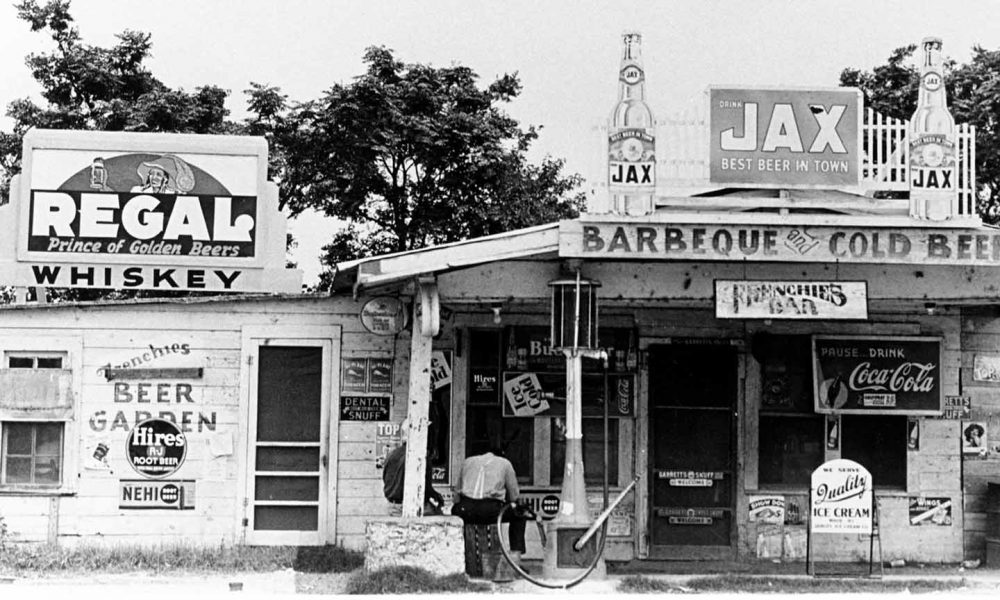Juke Or Jook Joints?

….and my Mama said Do you know what goes on in a juke house? Boy don’t you know there’s gambling, And a whole lotta drinking, And a lotta hot women. And I don’t want no boy of mine in a juke house.
‘Juke’ by Blind Mississippi Morris & Brad Webb
Juke is a West African word meaning wicked or disorderly in one language – in a Congolese language it means, a building without walls. It passed into popular usage amongst black Americans from the Southern States with a sexual overtone, it later came to describe a sort of dance. Like many derivative words, it’s almost impossible to get to the truth.
Generally, Juke joints were found in rural areas and it has been suggested that there is a link to the jute fields and the jute workers that frequented makeshift bars. Long before there was a blues industry, there were juke joints. Typically it had a bar that fronted onto the street, often with a dance floor and a back room for gambling or other activities; some Juke joints doubled as a brothel. According to Muddy Waters “We had these little juke joints, little taverns at that time. On a weekend there was this little place in the alley that would stay open all night. We called them Saturday night fish fries, they had two or three names, they called ‘em juke houses or suppers”.
The need for music in such a place is obvious. During the 1930’s the travelling Delta Blues players used the Juke Joints as their regular gigs, they were where many of the younger players first got inspired to pick up an instrument and learn to play it. It was in a Juke that Robert Johnson watched Son House, while Tommy Johnson studied Charley Patton. Robert Johnson was allegedly poisoned at this juke joint.
In the early days a Juke joint was just as likely to be someone’s house, it was one way of keeping that law at a distance. They would also have been a place in which bootleg liquor was sold.
Modern Delta Juke Joints
Today Juke Joints are still to be found throughout the Delta, although their number is in decline. There are a number in Clarksdale, including Reds, which has regular live music. In Leland, Mississippi, there is a wonderful Juke called Boss Hall’s. It is owned by W.C. ‘Boss’ Halls and is one of the last ‘real feeling’ places where you can experience the atmosphere that sustained the blues in the Delta.
Honky Tonks, Barrelhouses & Juke Joints
A Honky Tonk is the red neck equivalent of a Juke Joint. The difference between the two? The music you’ll find on the Jukebox and the colour of the women in the beer adverts. Barrelhouses are much the same and take their name from the fact that the beer was kept in barrels! Often more associated with pianists they were somewhat more likely to be found in towns. “The biggest thing around Vicksburg was Curley’s Barrelhouse. At the time you could hear Little Brother Montgomery” – Willie Dixon.
Juke Boxes
The naming of the jukebox was, of course, no accident; they are the ideal way of providing music in such establishments. They were invented in 1927 by The Automatic Music Instrument Company when they created the world’s first electrically amplified multi selection phonograph.













Deborah'
January 16, 2015 at 9:43 pm
Thanks for the info! I enjoyed it Very Much!
Donald
January 17, 2015 at 2:51 pm
You keft out Po Monkey. Boooo!